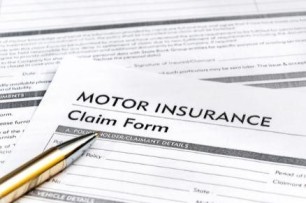General Insurance Blogs, Articles & Updates by - Magma Insurance
Have us call you
- RENEW YOUR POLICY
- BUY NEW POLICY

How many car insurance claims can be made every year
Accidents never come with a warning. And in such cases, having car insurance is a considerable relief. Otherwise, you will have to bear all the financial costs and suffer through the stress, which will never help the problem.
It is always advisable that before buying an insurance policy, you should know all the details and information. And to get the complete information, you need to ask all the right questions to your designated insurance provider. This helps you to know about the benefits you can avail and the steps to take in case you get into trouble.
Listing down all these things has us sweating. All these unforeseeable circumstances sound so taxing, don’t they? This blog has all the information you need regarding these crucial questions.
1. The number of insurance claims you can make:
It’s a mix and match. The higher the number of insurance claims you make in a year, your insurance premiums will increase. Most of the time, the number of insurance claims is not limited and mentioned in your car insurance policy. Your “no claim bonus” provided by your designated insurance provider reduces if you file a claim during a year. It is optional, so you are allowed to forfeit it. It would be best if you were mindful of your zero depreciation cover and other add-on benefits, as some insurance provider companies have a limitation on the number of claims in such covers.
2. Is there any particular number:
There is no particular answer to the question, “how many car insurance claims can be made every year.” It ultimately depends on the type of damage, the grade of damage, the type of policy cover you have under the insurance, and your insurance provider’s norms and regulations.
Although, it is advisable to save your insurance claims for damages that would cause you some financial stress. Do not file insurance claims in case of minor damages that bear low costs, and you can easily afford to get it sorted.
3. What happens if you file several claims:
Suppose you end up filing multiple claims. Are you worried about the consequences and what sort of situations might arise regarding your car insurance? We have discussed the no-claim bonus. Your rates will lower if you do not file any claims in a particular insurance period or year. You will have to bid farewell to your no-claim bonus if you file too many claims.
So, it is advised to only file claims if they are way beyond your affordability or more than your no-claim bonus. Filing too many claims will not only make you devoid of no claim bonus but also affect your premium rates which will skyrocket in case of multiple claims. This happens as these claims make you appear on a riskier end for your designated insurers.
Other consequences include the depreciation rate not being taken into account by the insurance company in case of zero percent depreciation coverage. Don’t file a claim if your repair charges are lesser than the deductibles.
That was all about how insurance claims you can make in a year. We hope this blog has provided the best insights. We suggest an essential tip for buying online motor insurance for first-time buyers. As there are plenty of options to explore, you can conveniently purchase a plan that best suits your requirements and budget.
Click HERE to know more about online motor insurance.
Disclaimer: The information provided above is for illustrative purposes only. To get more details, please refer to policy wordings and prospectus before purchasing a policy.

Binge eating disorder: Six innovative ways to control it
With changing circumstances and lifestyles, more people are prone to eating junk and unhealthy foods that can affect their behaviour adversely. Binge Eating Disorder, or BED, one of the most common eating disorders in the world, can tremendously affect your body.
The usual symptoms of binge eating disorder refer to excessive food consumption even when you're not hungry. The risk of Binge Eating Disorder in children and young adults is increasing with every passing day. This makes it a critical case of worry for everyone across the globe. The only optimum solution to this problem is regulating your eating habits. It is always beneficial to keep track of the best health insurance in India. This way, you will be covered health-wise wherever you go.
Let's look at the six practical ways to tackle BED.
1. Do not skip meals:
It is essential to adhere to a strict eating schedule throughout the day. The four-square meals a day are essential. None of them should be skipped at any point. If you skip a meal, you are more likely to have hunger pangs throughout the day.
This can stimulate cravings and give rise to binge eating. If you consume only one large meal throughout the day and binge eat in between, your blood sugar levels will also malfunction.
2. Drink water:
Hydration is one of the important characteristics of a healthy body. Water is essential in decreasing cravings. It helps in reducing overeating and maintaining a healthy weight. With an increase in water intake, hunger pangs will decrease as well. You should always pay attention to your body's call to thirst.
Although the level of water you should consume may depend on many factors, drinking water at regular intervals is a healthy habit to practise. Also, drinking water before meals can burn calories.
3. Practice meditation:
Mindfulness is a technique that involves being aware and fully present in the moment. Through mindfulness, you'll be able to listen to your body better. It is a great way to train your mind to avoid overeating.
It helps you understand what you are feeling and experiencing by making you understand your body better. It will also help you in processing your emotions well. When mindfulness is paired with cognitive behavioural therapy, the results are astonishing for BED.
4. Practice yoga:
Yoga is one of the most effective tools in reducing stress and anxiety in the body. With yoga, your body is trained to be emotionally stable. It involves meditation and breathing exercises that add to the overall development of the body.
It is noticed that people who have undertaken yoga in their lives enjoy reduced levels of stress. This can directly correlate to emotional stability and, thus, a reduction in emotional eating. It can significantly reduce the factors responsible for binge eating.
5. Clean the clutter:
The more organised your kitchen looks, the better. Take a day out of your schedule to eliminate all the extra clutter in your kitchen. Throw all the junk food away and replace it with healthy alternatives like fruits, vegetables, and nuts. It will clear your mind and make you more attentive toward healthier food items. Your surroundings will no longer trigger you, and you'll refrain from overeating junk food.
6. Work out for a while:
Physical exercise is highly crucial to your body. It can prevent binge eating to a great extent. Therapy alone cannot help BED patients. When paired with physical exercise, things get significantly different and better. Any physical exercise like swimming, running, biking, jogging, or playing sports can reduce binge eating. It is a step towards a healthier lifestyle.
Keep all the above pointers in mind when tackling Binge Eating Disorder. If you can follow these correctly, you can recover from BED. The battle is long and arduous but not impossible. Regardless, you should also consult with the best health insurance in India beforehand to keep you safe and secure and manage your finances well in any emergency.
Click HERE to buy the best health insurance in India.
Disclaimer: The information provided above is for illustrative purposes only. To get more details, please refer to policy wordings and prospectus before purchasing a policy.

Everything you need to know about hit-and-run accidents
Hit-and-run accidents are frustrating events where a driver causes an accident and flees from the spot to avoid getting into complications. In many such accidents, the driver and the vehicle causing the accident become untraceable even after reasonable efforts have been made to search for them by investigating authorities.
As per the 2020-21 report of the Ministry of Road Transport and Highways, around 14.3% of cases of the total accidents that occurred in India accounted for hit-and-run. Section 161 of the Indian Motor Vehicles Act outlines the guidelines and proceedings in case of a hit-and-run accident.
The victim of such an unfortunate event can get relief by applying for an insurance claim to compensate the damage done to the vehicle. Let us see what we should do to claim car insurance in case of a hit-and-run accident.
1. Note down all important details:
In a hit-and-run case, the aggrieved party should avoid running after the offending car to catch it. If you face a situation like this, your first immediate response should be noting down the car number and other possible details about the car and the driver that can help the police to track him down.
The same applies to a hit-and-run accident in the case of a parked car. You should try to find the registration number of the vehicle involved in the accident by going through all available CCTV footage of the vicinity.
2. Find witnesses:
In some situations, it is possible that you won't be able to spot the accused vehicle and the driver due to mental shock or other damages post-accident. In this case, try speaking to people present at the site and gathering as much information as possible about the vehicle and the driver that caused the accident and fled. This will help you recreate the scene and gather enough information to file a case.
If your car was hit while parked somewhere, try to find any possible witness of the accident. In either case, take the witnesses' names and phone numbers so they can testify for you and help you to get your car insurance claim.
3. FIR:
You must register a First Information Report or an FIR about the accident at the nearest police station to the accident site. The police will then investigate the case and prepare a report. The car insurance company will require a copy of the FIR to process your claim.
4. Procedure:
The first step after you get engaged in a hit-and-run accident is to inform your car insurance company about the accident. Then you need to file an application to the Claims Enquiry Officer of that Taluka. You can appoint an agent as your legal representative to handle the case. In case of death, your family or a legal representative chosen by them will look after the compensation process.
On being satisfied, the Claims Enquiry Officer will submit his report to the Claim Settlement Commissioner. He will further process the report and prepare a sanction report. The Claims Enquiry Officer will communicate the sanction order to the car insurance company.
5. Compensation:
Once the car insurance company is fully satisfied with the evidence and the report, it will cover the repair and replacement charges of the car as per the terms and conditions of the insurance contract. Other than the above compensation, the Central Government has also set up a hit-and-run insurance fund to compensate the victims of hit-and-run accidents.
The numbers of hit-and-run cases have been constantly on the increase in India. In such cases, the claim settlement process under car insurance is a bit lengthy. However, the police should give a report stating that the offender could not be traced before the insurance company settles the claim. Also, the complainant should prove that the offender was at fault and that the accident occurred due to his negligent driving.
Hit-and-run accidents can be terrifying and challenging to recover from. Hence, an active car insurance policy is essential for comprehensive protection. This will secure you and your family from any monetary losses from the accident and ensure that you safeguard your finances.
Click HERE to buy car insurance
Disclaimer: The information provided above is for illustrative purposes only. To get more details, please refer to policy wordings and prospectus before purchasing a policy.

Most answered FAQs for motor insurance policies
Insurance policies are supposed to be understood thoroughly before you purchase them. Their purpose is how they would protect you and your assets against financial damage and decide on premiums and claims. Insurance companies conduct detailed background checks of their policyholders to ensure that they have authentic identities, are not involved in any criminal activities, money laundering, or financial scams, are not victims of identity theft, have a good credit score, are reliable drivers and law-abiding citizens of the country and much more.
Are you someone looking to understand the basics yet the most critical questions that would help you purchase motor insurance? We are here with all you need. In this space, we will discuss the most answered FAQs for motor insurance policies. This information will provide essential pointers you will need to understand if you are new to the insurance world.
1. What does third-party risk policy mean:
Third-party risk policies are necessary insurance policies that would protect the owner against the risks mentioned in the act. The third-party insurance policies compensate for the damages caused to the assets of the third parties or during deaths or accidents of the third parties.
2. Validity of your motor insurance:
You must know about the validity of your motor insurance so you can avail of the benefits on time. Always be up to date with your premiums and renew them to avoid putting your vehicle at risk. This way, you avoid financial burdens in case of unfortunate circumstances. The period of motor insurance from the day it begins is up to a year. This will be displayed in your insurance policy's schedule. Do not forget to read the documents and the listed terms and conditions carefully.
3 . Making claims:
Evaluate and estimate the cost of your damages. In many cases, raising small claims might not be a good idea if the damage costs you a small amount that you can easily bear. Keeping your claims for the future can help you avail them whenever there is a dire need in case of a substantial financial burden. Check the no claim bonus, which comes under your vehicle insurance. Follow through with the estimates and what you might have to forfeit under the bonus. Evaluate carefully and make the decision.
4. What happens during an accident:
If it were being driven by someone else, your car or motor insurance would still be valid to use, given that the person driving your vehicle was granted permission by you for the same. You can use your insurance policy to ensure you do not incur enormous costs for repairing the damages.
Also, vehicles are liabilities too. So, the individual's (the person driving your car) liability insurance can be a huge help in paying for the damages if your motor insurance exhausts its limits during the complete servicing and repairing process. Be mindful of your insurance limits.
5. Selling your vehicle:
If you decide to sell your vehicle, you can hand over the authority of the motor insurance to the new buyer. You must make sure that you apply for an insurance transfer with the designated insurance organisation within fourteen days of your car's transfer date under the buyer's name and ownership. You need to pay the endorsement premium before transferring the insurance policy.
Well, these were the most answered FAQs for motor insurance policies. We hope that this information proves helpful to you in understanding a little deeper about motor insurance and the fundamentals you must be aware of to ask the right questions to your insurance provider companies and officials. Also, explore all your options and get the best motor insurance India. List down your requirements and accordingly plan the estimated premium. Make practical decisions and see the results doing wonders for you!
Click HERE to know more about the benefits of buying the best motor insurance India.
Disclaimer: The information provided above is for illustrative purposes only. To get more details, please refer to policy wordings and prospectus before purchasing a policy.

